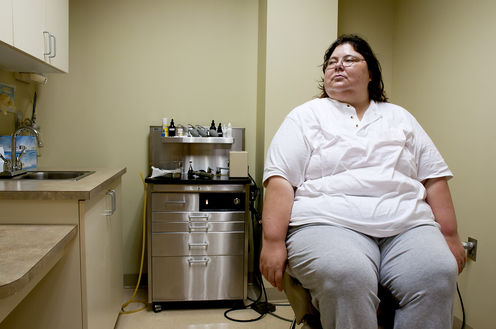
The review of the national welfare system released today has proposed reducing the number of basic payments and tightening eligibility for disability support. But a government move towards the latter is already risking the integrity of the welfare system, and the health of people with disability.
In December 2014, then-social services minister Kevin Andrews announced that from January 1, 2015, government-contracted doctors would assess applicants for the disability support pension. These independent medical assessments are in addition to the job capacity and employment services assessments already in place for the disability support pension.
The government would be wise to tread carefully here. A growing body of evidence shows such assessments can exacerbate poor health in those with already complex health conditions, as well as complicating the relationship between a treating health-care practitioner and their patient.
Independent medical assessments
Independent medical assessments are used to establish the cause of a health condition, to identify treatment needs, to establish capacity for work, to determine a person’s degree of function or impairment, and to assess treatment progress or the suitability of treatment being provided.
Typically, government-appointed doctors or allied health professionals conduct these on behalf of social welfare agencies. In some places, the person applying for government support can even request an assessment as a way of proving eligibility.
Social policy regulators use these assessments as a tool to maintain some control over who receives benefits and what type of benefits are provided.
They’re often used for people who have complex health conditions. They may be workers with long-term injuries receiving workers compensation benefits, or motorists with serious traumatic injury resulting from motor vehicle accidents.
The problem is that such assessments can make things worse for many of these people.
Not so great
Consider this recent study of long-term health outcomes of Australians hospitalised after traumatic injury. It reported that 27% of injured people found dealing with multiple such assessments during their injury compensation claim highly stressful. These people had higher levels of long-term disability, depression and anxiety than other claimants.
Another Australian study found independent medical assessments were associated with increased health-care use after motor vehicle accidents. Again, this suggests multiple assessments may have a negative impact on health status.
One reason for this may be that the person being assessed is required to demonstrate illness symptoms to the assessor in order to receive benefits. Research shows this can exacerbate illness and disability.

Another possibility is that independent medical assessments are thought to be unfair or unjust. There’s often little opportunity for responding to an assessor’s findings; the person being assessed has little influence over the choice of examiner, location or timing of appointments; assessments are completed in a single consultation often with limited information available to the assessor; and the person’s treating physician is not always consulted.
What’s more, assessments conducted by independent medical assessors report lower levels of disability than those assessed by treating physicians. So, it’s not surprising that people question the fairness of the test.
A study of a Canadian compensation system shows how perceived injustice is associated with negative health outcomes. This study characterises independent medical assessments as “anti-therapeutic”.
Assessing and reviewing health status to determine eligibility for benefits with such tools has been described as part of a “cyclical and pathogenic” process because assessments have the potential to limit access to necessary treatment; breed mistrust between the disabled person, their doctors and the government; and ultimately exacerbate underlying health conditions.
Positive steps
Some of the negative impacts of independent medical assessments can be avoided by simple changes to process and procedure.
All the following changes can help: providing feedback on findings to the disabled person and their treating health-care provider to avoid misunderstandings; offering the opportunity for rebuttal; or allowing the person with disability some influence over the timing and location of the assessment.
A truly equitable system would set up an independent body to administer the identification, training and provision of assessors. This could increase trust in assessment findings and help minimise negative consequences.
Requiring people living with disability to undertake independent medical assessments runs the risk of worsening their health, reducing workforce participation and increasing the cost of disability support to the community.
So, unless such assessments are implemented carefully and conducted fairly, they may have the opposite impact to what the government says it wants.
Alex Collie receives funding from the Australian Research Council, the National Health and Medical Research Council of Australia, the Transport Accident Commission, Worksafe Victoria, Comcare, and the Canadian Institutes of Health Research
